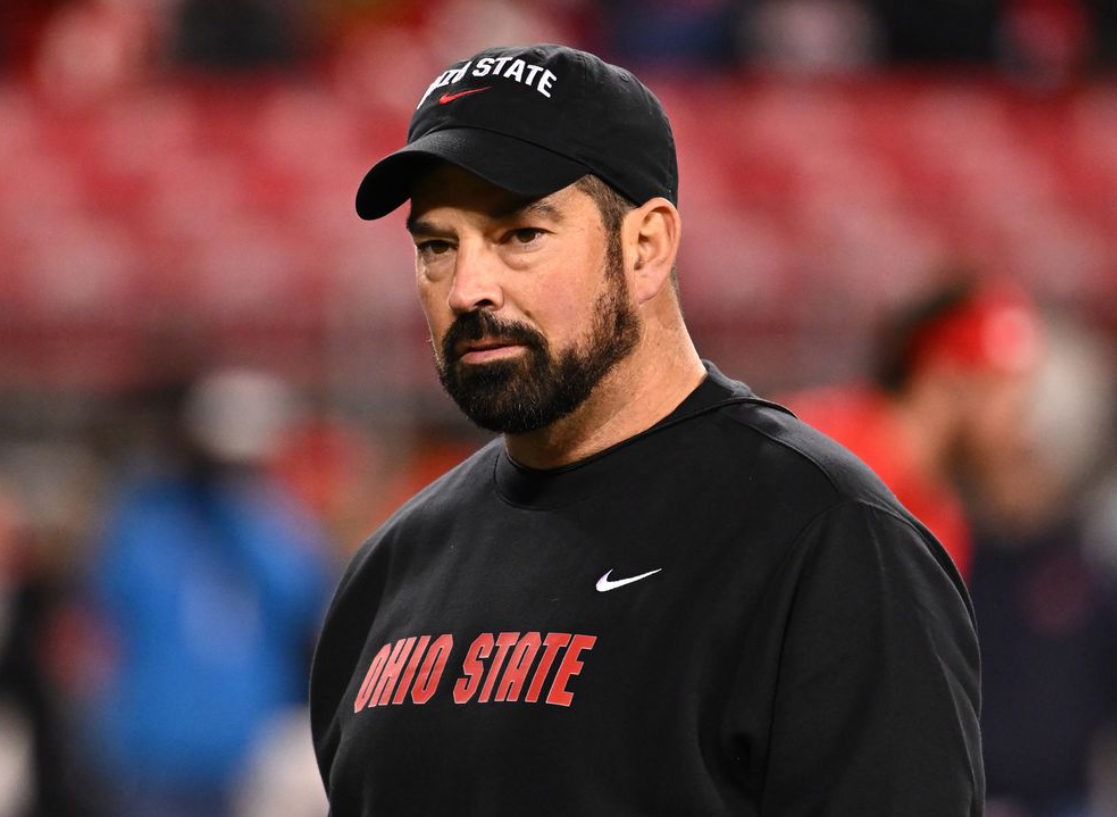Ryan Day is a renowned figure in the world of American football, both as a former player and current coach. Born on March 12, 1979, in Manchester, New Hampshire, Day’s football journey began in his early years, playing as a quarterback during his high school and university days. His coaching journey commenced at his alma mater, the University of New Hampshire, where he served as the tight ends coach. His prowess and passion for the sport led him through a series of coaching positions, eventually landing him at Boston College and then at the National Football League (NFL), where he coached at the Philadelphia Eagles and San Francisco 49ers.
In 2017, Day joined the Ohio State Buckeyes as a quarterbacks coach and co-offensive coordinator. His diligence and strategic acumen led to his promotion as the acting head coach in 2018 and eventually, the head coach in 2019. Under his leadership, the Buckeyes have enjoyed significant victories, with Day’s offensive strategies often being credited for the team’s success. His ability to nurture and develop players is evident in the number of his proteges who have gone on to have successful careers in the NFL.
In addition to his coaching victories, Day is recognized for his commitment to mental health awareness. He and his wife, Christina, launched the Ryan and Christina Day Fund for Pediatric and Adolescent Mental Wellness at Nationwide Children’s Hospital in 2019. The fund aims to provide mental health services to young people, reflecting Day’s commitment to supporting his community off the field as well.
Despite the high-pressure environment of American football, Day continues to demonstrate resilience and adaptability, qualities that have been instrumental in his successful coaching career. His approach to coaching, which emphasizes teamwork, discipline, and strategic thinking, sets him apart in the competitive world of American football. Ryan Day’s journey in football, both as a player and a coach, showcases his dedication to the sport and his exceptional ability to lead and inspire others.

Playing Career and Achievements
Throughout a playing career, an individual can earn a multitude of accolities and achievements. These can range from personal triumphs such as perfecting a specific skill or technique, to more communal victories such as leading a team to a championship. Achievements can serve as a testament to an individual’s dedication, hard work, and talent in their chosen sport. They can also reflect an individual’s ability to work effectively within a team, displaying leadership, communication, and cooperative skills.
In professional sports, these achievements often come in the form of awards and titles. For instance, a soccer player might receive the ‘Golden Boot’ for scoring the most goals in a season, or a basketball player might be named ‘MVP’ (Most Valuable Player) for their outstanding performance throughout the year. These accolades recognize the individual’s exceptional performance and contribution to their sport.
Aside from these, there are also achievements that are less tangible but equally significant. These can include overcoming personal hurdles, such as recovering from a major injury or breaking personal records. The sense of accomplishment and self-improvement that comes from these triumphs can be incredibly rewarding.
A playing career filled with achievements not only brings recognition and respect but also adds value to a player’s career. It can open doors to further opportunities, such as sponsorship deals, media appearances, and even post-playing career roles in coaching or sports commentary. In the end, the achievements garnered throughout a playing career are the fruits of an individual’s passion, perseverance, and dedication to their sport. They serve as a testament to the player’s journey, highlighting both their struggles and their successes.
Coaching Journey and Development
The coaching journey and development is a transformative process that requires a significant commitment to learning, self-discovery, and enhancing one’s skills. It is a career path characterized by continuous growth and evolution, kick-started by acquiring relevant training and certification from accredited institutions. This initial step arms aspiring coaches with key theoretical knowledge and practical skills necessary in their discipline, be it life coaching, sports coaching, business coaching, among others.
The journey doesn’t stop there. The development aspect comes in when these individuals start honing their coaching skills in real-life scenarios. They begin to understand the dynamics of the coach-client relationship, the art of listening, and the power of impactful communication. They learn the importance of creating a supportive environment for their clients, encouraging them towards self-improvement and goal attainment.
Furthermore, professional development is crucial in the coaching journey. This entails engaging in ongoing education to stay abreast of the latest coaching methodologies and approaches. By participating in workshops, seminars, webinars, and coaching circles, coaches can deepen their understanding of the field and enhance their service delivery.
Moreover, personal development is equally important. Coaches should be continuously self-reflecting and self-improving, as their personal growth directly impacts their coaching effectiveness. This could involve broadening their perspective, developing emotional intelligence, fostering resilience, or nurturing empathy.
The coaching journey and development is, therefore, not a straight path. It’s a cycle of learning, practicing, reflecting, and growing. It’s about consistently striving for excellence and remaining dedicated to the coach’s primary role – to inspire, empower, and facilitate change. Indeed, it is a journey that demands patience, persistence, and passion. It is a journey that shapes not only competent and confident coaches but also individuals who can positively impact the lives of others.

Early Coaching Roles
Early coaching roles hold significant importance in the development of skills, talents, and abilities in individuals. These roles primarily involve guiding, mentoring, and fostering growth in the early stages of learning or skill development. The role of a coach in the initial phases of an athlete’s or a student’s journey is often pivotal in shaping their future progress and success. In the realm of sports, for instance, early coaches are responsible for recognizing the innate talent of budding athletes, nurturing their abilities, and helping them refine their techniques.
They create a structured environment that fost good habits, discipline, and a strong work ethic. Similarly, in the educational context, early coaching roles involve fostering a conducive learning environment, developing a student’s intellectual curiosity, and instilling a love for learning. They work closely with students to identify their academic strengths and weaknesses and provide individualized instruction to enhance their understanding and knowledge.
Early coaching also plays a crucial role in cultivating resilience, confidence, and self-belief in individuals, setting a solid foundation for their future endeavors. Whether it’s on the playing field or in the classroom, early coaches have the potential to make a lasting impact on the lives of those they mentor. Therefore, understanding the significance of early coaching roles is essential in appreciating the profound influence coaches can have in shaping the course of an individual’s personal and professional growth.
Ohio State University Coaching Tenure
Ohio State University has a storied history in athletics, with its coaching tenure being a notable part of its legacy. The University has been home to several renowned coaches who have left a significant imprint on their respective sports. One of the most recognized figures in this regard is Woody Hayes, who served as the head coach of the university’s football team from 1951 to 1978.
Under his leadership, the team won five national championships and 13 Big Ten titles, cementing the university’s reputation as a powerhouse in collegiate football. In basketball, Fred Taylor’s tenure from 1958 to 1976 also stands out, with his team winning one national championship and seven Big Ten titles. More recently, Urban Meyer steered the football team to a national championship in 2014 during his tenure from 2012 to 2018. Similarly, Thad Matta, who was at the helm of the basketball team from 2004 to 2017, led his team to two Final Four appearances. These are just a few examples of the successful coaching tenures that have contributed to Ohio State University’s rich athletic tradition.
Each coach brought their unique styles and philosophies, shaping the teams they led and leaving a lasting influence on the athletes they mentored. Their collective contributions have helped establish and maintain the university’s status as a leader in collegiate athletics.

Personal Life and Background
Understanding the personal life and background of an individual is crucial to comprehend their values, beliefs, and actions. It’s a combination of experiences, upbringing, education, and circumstances that shape an individual’s personality. Every person’s life story is unique and contributes significantly to their character development.
Starting with childhood, the environment in which a person is raised plays a pivotal role in shaping their behavior and attitude towards life. The cultural values, societal norms, and economic conditions prevalent during this period also greatly influence a person’s outlook on life. The family’s traditions, religious beliefs, and the level of education received are also critical components of this development.
As they grow older, the experiences they encounter, the relationships they form, and the choices they make, all contribute to their personal life and background. The trials they overcome, the triumphs they celebrate, the heartbreaks they endure, all leave an indelible mark on their character.
By delving into an individual’s personal life and background, we can gain insights into why they behave a certain way or hold specific beliefs. We can understand their motivations, their fears, their aspirations, and their dreams. This understanding is especially crucial in fields like psychology, social work, and counseling, where an in-depth understanding of an individual’s personal life and background is essential to provide effective help and support.
In conclusion, an individual’s personal life and background is a rich tapestry of experiences, beliefs, and values that shape their personality. It provides a lens through which we can understand their behavior and actions, thus enabling us to interact with them more effectively and empathetically.
Head Coaching Record and Statistics
A head coaching record and statistics provides an objective assessment of a coach’s performance. This record includes information such as the total number of games won, lost, or drawn, the percentage of victories, and the number of championship titles secured. It also can include details about the coach’s involvement in playoffs and other tournaments. These statistics are often used to evaluate a coach’s effectiveness and success rate in a particular sport. They also serve as a benchmark for comparing different coaches in the same sport or across different sports. A coach’s record can fluctuate based on numerous factors, such as player injuries, team morale, and the strength of opponents. The longevity of a coach’s career, the level at which they coach (high school, collegiate, professional), and the sport they coach can also impact these statistics. Additionally, a coach’s record and statistics can be influenced by their coaching style and philosophy, player development, and recruitment strategies. It’s important to note that while a coach’s record can provide a snapshot of their career, it may not fully capture their overall impact and influence on a team or individual players. Similarly, a coach’s record may not accurately reflect their tactical acumen, leadership skills, or ability to build a strong team culture. Nevertheless, statistics and records remain a significant and widely used tool in evaluating a coach’s career achievements.